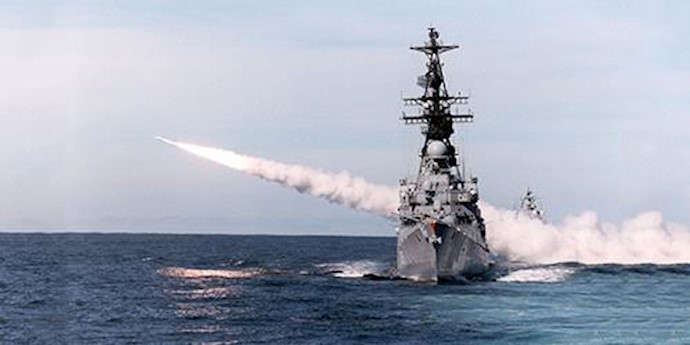WASHINGTON – New York Times- DEC. 30, 2015— After two recent Iranian ballistic missile tests made clear that Tehran had no intention of obeying a United Nations prohibition on such launches, Obama administration officials on Wednesday handed Congress a draft list of fresh sanctions they are preparing against Tehran — to be imposed even as separate nuclear-related sanctions are lifted in coming weeks.
The new sanctions are designed, administration officials say, to make clear that the United States remains committed to containing Iran’s regional ambitions, which have so rattled its Arab neighbors. But they are also intended as a carefully calibrated answer to critics, from Capitol Hill to Saudi Arabia, who have argued in recent months that President Obama is willing to overlook almost any Iranian transgression in order to avoid derailing the nuclear deal he pursued for so many years.
There is now almost no doubt that the nuclear accord will go into effect. But the past few days have been full of sobering reminders that the grander objective of that deal — some gradual steps toward an era of wary cooperation, or at least a cessation of hostilities between Washington and Tehran — remains a long way away.
Just last week, the Republican-led Congress inserted new rules into the budget signed by Mr. Obama that were clearly intended to discourage foreigners from doing business with Tehran. Then on Saturday, the Iranian Navy harassed an American aircraft carrier and a French frigate in the Strait of Hormuz, launching rockets that passed within 1,500 yards of the U.S.S. Harry S. Truman. It seemed an act somewhere between recklessness and outright aggression.
So much for détente. The Republicans in Congress who voted against the nuclear deal — which was all of them — are looking for ways to signal their continuing
The missile tests are a classic example. Secretary of State John Kerry delayed the nuclear deal reached in July in Vienna by days as he haggled with his Iranian counterpart, Mohammad Javad Zarif, over the side issue of whether, and how long, a United Nations resolution banning missile development and testing would remain in place.
The Iranians dismissed that part of the accord as soon as it was announced: Nothing, they said, could infringe on their fundamental right to build a “defensive technology,” intended to counter Saudi Arabia and Israel.
The new United Nations resolution, which goes into effect only after the nuclear deal is implemented, is far more weakly worded than the existing ban on such tests. Iran is “called upon” to stop work for eight years on ballistic missiles capable of delivering a nuclear weapon. The missiles tested recently appear to have that capability, with modest design changes.
A senior administration official said Wednesday night that the United States had been “looking for some time at options for additional actions related to Iran’s ballistic missile program based on our continued concerns about its activities,” including the missile tests. “As always, we keep Congress informed about issues related to Iran sanctions, and will continue to do so as we work through remaining issues.”
Iranian officials have said that if the Treasury issues new sanctions, the country’s supreme leader, Ayatollah Ali Khamenei, will regard them as a violation of the nuclear accord. They would not be: The agreement does not preclude sanctions for non-nuclear violations, including human rights violations and the flouting of the missile ban.
But they certainly illustrate how the two countries have drifted away from the early speculation, in both capitals, that the nuclear deal was the first step in a broader rapprochement.
Neither government has, so far, allowed the latest provocations to get in the way of the steps each promised to take in the nuclear pact. On Monday a Russian ship left Iran carrying most of the country’s stockpile of low-enriched uranium
Meanwhile, the rockets fired by Iran’s Islamic Revolutionary Guards Corps near the American warships in the heavily trafficked Strait of Hormuz could inflame tensions, as well, military officials said. The rockets, Navy officials said, also came dangerously close to commercial ships.
“It’s the equivalent of walking onto I-95 and deciding to have a weapons test,” said Cmdr. Kevin Stephens, a spokesman for the Navy’s Fifth Fleet.
In a written statement, the Navy called the Iranian military action “unsafe, unprofessional and inconsistent with international maritime law.”
Iranian officials declined to comment publicly, but the semiofficial Tabnak news agency quoted an unnamed official as saying that the rockets had been fired to warn the Truman away from “a forbidden zone” in the Persian Gulf, in keeping with “normal procedure.”








